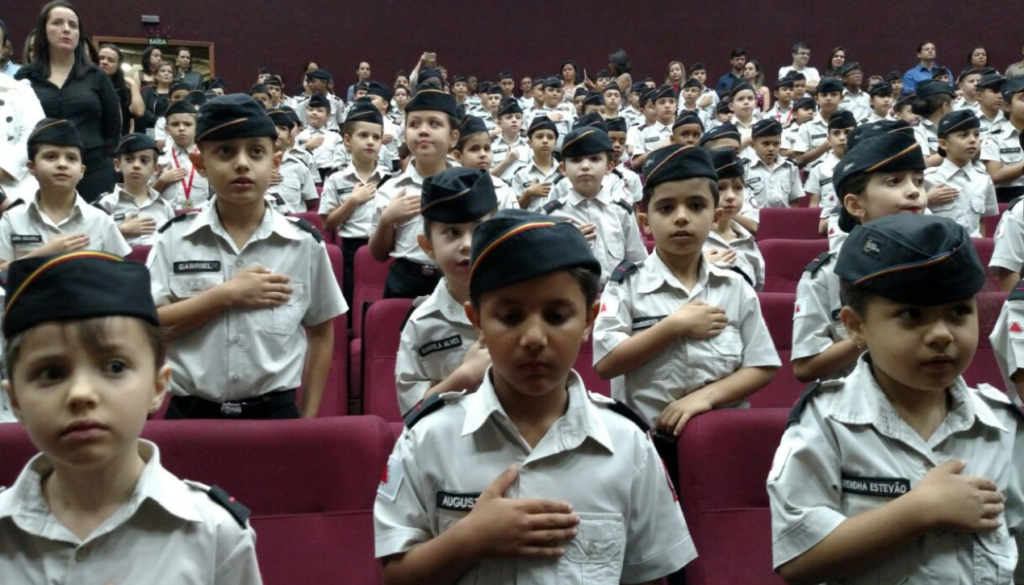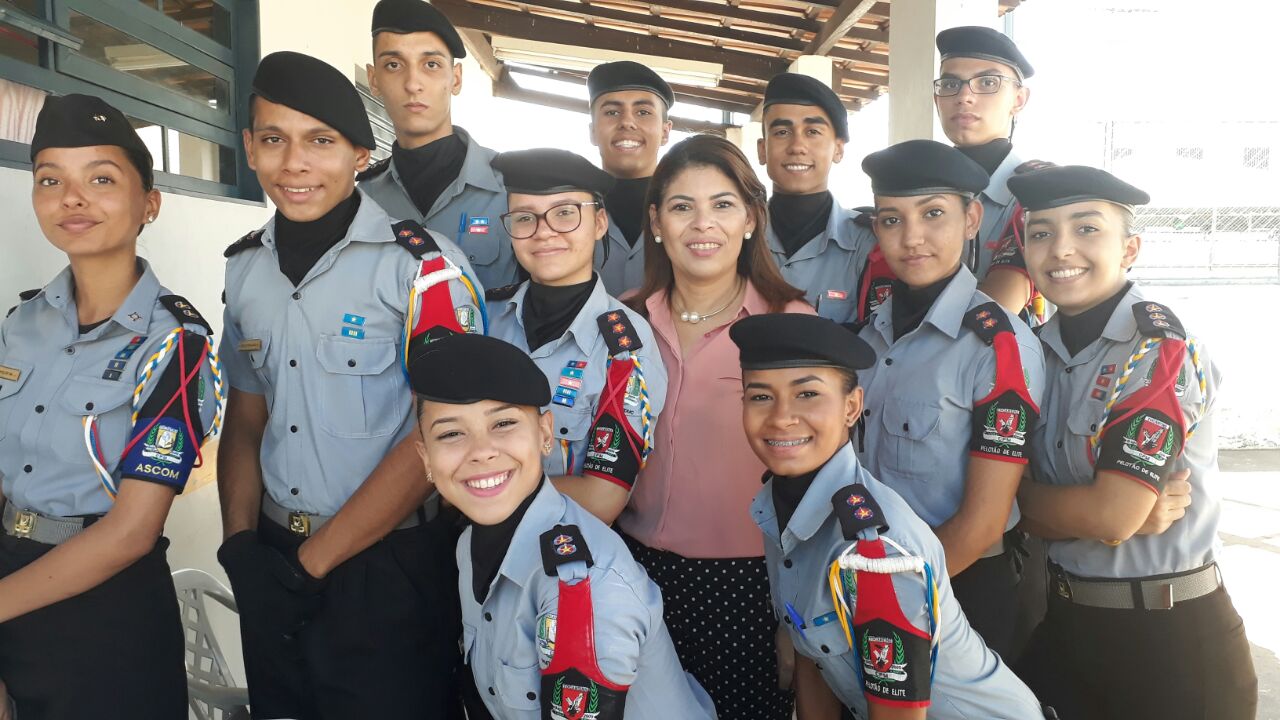RIO DE JANEIRO, BRAZIL – Although the investment targets for public education are to be reduced, the Ministry of Education (MEC) intends to establish 108 civilian-military schools by 2023. This is one of the actions provided under the National Commitment to Basic Education, a document introduced Thursday, July 11th, in Brasília, to be implemented by the end of the current government.

In addition to military schools, the goal is to speed up the completion of more than 4,000 daycare centers by 2022; connect 6,500 rural schools via broadband satellite in all states; and offer distance learning courses to improve teacher training by 2020, among other actions.
The document was prepared by the MEC together with states and municipalities represented by the National Council of Secretaries of Education (CONSED) and the National Union of Municipal Directors of Education (UNDIME).
According to the Minister of Education, Abraham Weintraub, the action plan seeks to give more prominence to the states and municipalities, following the motto defended by the government of “less Brasília and more Brazil.”
The aim is to turn Brazil into a reference in education in Latin America by 2030, according to the MEC.
Civilian-military schools
One of the main features of the National Commitment to Basic Education is the introduction of civilian-military schools, an agenda defended since president Jair Bolsonaro‘s campaign.

This year, the MEC started to include an Undersecretariat for the Promotion of Civilian-military Schools. The plan presented on Thursday is to introduce the model in 27 schools each year, one per state. The measure should serve 108,000 students.
In addition to the 27 new schools every year, the MEC intends to consolidate 28 civilian-military schools every year, together with the other federal bodies, totaling 112 schools by 2023, serving approximately 112,000 students.
Civilian-military schools are non-militarized institutions with a team of military reservists as tutors. The aim is to increase the average of the Basic Education Development Index (IDEB). According to the MEC, while the IDEB average in military high schools is 6.99, in civilian schools, it is 4.94.
Main goals of the National Commitment to Basic Education
Daycare Centers — Reorganize the National Program for Restructuring and Acquisition of Equipment for the Public School Network of Early Childhood Education (ProInfância) to expedite the conclusion of more than 4,000 daycare centers by 2022.
Comprehensive education — Revitalize the Novo Mais Educação (“New More Education”) program. Participating schools will have a minimum of 5 hours of lessons per day. Overall, the plan is to extend it to seven hours a day. The goal is to reduce dropout and improve educational indicators.
High School — Stimulate the Novo Ensino Médio (“New High School”), passed by law in 2017. Invest R$230 million (US$57.5 million) by the end of 2019 in full-time high school. A pilot project in 3,500 educational institutions is planned for 2020. In the new high school, students will be able to choose a training itinerary to complement the basic training offered to all students. They will be given a choice between training in languages, mathematics, the natural sciences, and the humanities and social sciences, as well as technical and vocational training.
Internet — Connect, through the Inovação Educação Conectada (“Connected Education Innovation”) program, 6.500 rural schools through broadband satellite in all states, investing R$120 million by the end of 2019, benefitting approximately 1.7 million students. The MEC will also transfer R$114 million to boost Internet in 32,000 urban schools, benefitting 17 million students.
Interactive classes — The Federal University of Ceará, the Federal University of Goiás and the Federal University of Santa Catarina will develop games focused on the early years of elementary education, i.e., the 1st to 5th year. R$3 million will be invested by the end of 2019.
EJA (Educação de Jovens e Adultos) — The Education of Young People and Adults will be linked to professional and technological education, in addition to being connected to the Common National Curriculum Base (BNCC), a document that establishes the minimum to be taught in all schools in Brazil.
Teacher training — By 2020, establish teacher training courses through distance learning, providing support materials and resources. The purpose is for teachers who are not trained in their areas, to receive training as well as better qualification for all other professionals.
Civilian-military schools — Establish 27 civilian-military schools per year, in each of the federation’s units, by 2023.

